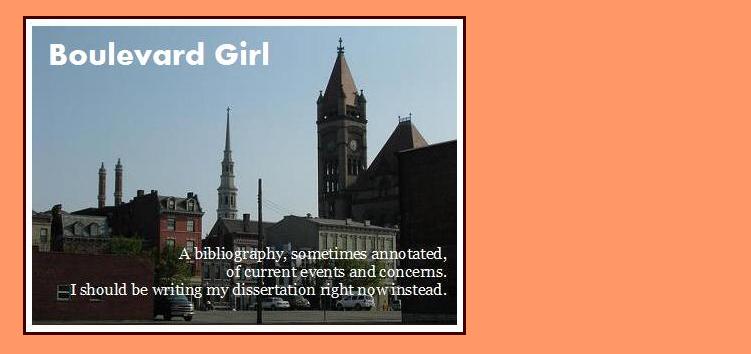If we needed further evidence that Julian Assange is a fool and an amateur in his understanding of international affairs (though admittedly technically clever), how about the apparent unintended consequences of this round of WikiLeaks? He claims to have caught the US government in some grand "gotcha" moment of lies, deceit, inhumanity, and generally bad behavior (See cablegate.wikileaks.org -- when it's not being hacked down that is). While the USG is embarrassed by the leaks and concerned they will hinder diplomacy going forward, they suggest that the US and other democratic governments are apple-tree cutting George Washingtons compared to their non-democratic counterparts. The revelations are much more at the expense of the latter than the former. He claims to support government transparency and internet freedom as general principles, but he pushes these principles only in the easiest case--vis a vis a government where such leaks are possible and one does not incur risks to the lives of one's family members. See his now defunct blog (via Michael Totten). Finally, for all Wikileaks' invocations of free speech and transparency, there is good reason to think American diplomacy will become more secretive and diplomats less frank as a result of the leaks. Freedom as a form does not necessarily make for freedom as a result, as my man Montesquieu teaches (as articulated by Mansfield).
Diplomats to start talking like Congressmen, i.e. less honesty in government
I don't think anyone can be sure what the consequences will be to frankness among American diplomats and their counterparts abroad--in large part because the diplomatic institutions of authoritarian countries seem inherently more opaque and more unpredictable. Nonetheless, I think that the bleak assessments are plausible. Moreover, it makes sense to emphasize the great risks to deter further leaking and throw cold water on the praising of leakers and leakees (thanks to Gabriel Schoenfeld for that term). I don't blame them for being angry and emphasizing the worst case scenario.
See also, Richard Haass, "How to Read WikiLeaks." Council on Foreign Relations. November 29, 2010.
SEE ALSO: Paul Schroeder, "Op-Ed: The Secret Lives of Nations," The New York Times. December 2, 2010.
The State Department, its own tools weakened, may increasingly have to defer to the tools of Defense and Treasury
James Rubin, "The Irony of Wikileaks: by undercutting diplomacy, the hard left is threatening its own worldview." The New Republic. December 1, 2010.
The US government is not telling any "big lies" about its foreign policy. It's non-democratic countries who are. Gotcha!...Saudi Arabia? China?
Also from James Rubin:
The Wikileaks document dump, unlike the Pentagon Papers in the 1970s, shows that American private communication with foreign leaders by and large reflects the same sentiments offered by U.S. officials in public. There is no grand conspiracy, no grand hypocrisy to uncover and expose. The big hypocrisies here are not being perpetrated by Americans; they are being perpetrated by foreign governments, namely non-democratic ones.Relatedly, see Jeffrey Goldberg on what WikiLeaks reveals about the nefarious cabal trying to influence US foreign policy in the Middle East....the Arab Lobby!
And the one country that has got to feel pretty good about the political implications of "Cablegate" is...Israel! That's what you were trying to do, Assange, right?
Marc Tracy, "For Bibi and Israel, Vindication." Tablet Magazine. November 29, 2010.
UPDATE: Maybe because it's all he's got to work with, or maybe because his worldview is not uniformly of the illiberal leftist persuasion, Assange is pointing to some of Netanyahu's comments as evidence of WikiLeaks' "public service."
...Which of course boosts Iran's and Turkey's insistence that Wikileaks is a Zionist conspiracy.
...Which of course boosts Iran's and Turkey's insistence that Wikileaks is a Zionist conspiracy.
These cables make it pretty clear that Israel's geopolitical analysis is actually shared by most of its neighbors, though they don't have the stomach to say so publicly. Few leaders actually believe the lies they often affirm in public, that Israel is the serious regional threat. In private its Iran Iran Iran. The leaks suggest that Israel is the only country telling the truth in public. Moreover, they suggest that robust American intervention in their region is what Arab leaders want. As Jeffrey Goldberg puts it, turns out Arab leaders are a bunch of neocons.
Whether or not the leaks will actually help address the global threat Iran represents is an entirely different question though. They may clarify understanding of the threat and forge unity of purpose in Western countries, but at the same time make it more difficult for Arab monarchies to participate in efforts to undermine the Iranian regime and its nuclear program.
Whether or not the leaks will actually help address the global threat Iran represents is an entirely different question though. They may clarify understanding of the threat and forge unity of purpose in Western countries, but at the same time make it more difficult for Arab monarchies to participate in efforts to undermine the Iranian regime and its nuclear program.
See also, Jerrold Kessel and Pierre Klochendler, "Unexpectedly, Israel Welcomes WikiLeaks Reveations." Inter Press Service. December 1, 2010.
Also, the leaked cables detail corroboration of arguments Israel and its defenders often make, but too many brush aside and even mock as paranoid or fabricated:
-Turkish PM Erdogan and his regime hate Israel with a religious fervor.
-The Iranian government actively supports terrorist operations against Israel via Hezbollah and others, including by commandeering Red Crescent ambulances to smuggle weapons.
See also, Raymond Bonner, "'By Whatever Means Necessary': Arab Leaders Want Iran Stopped." The Atlantic. November 29, 2010.
***



